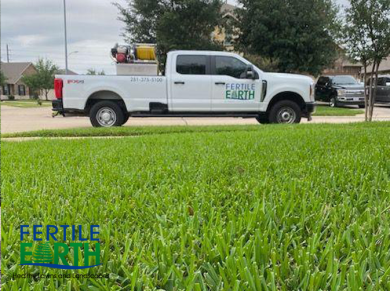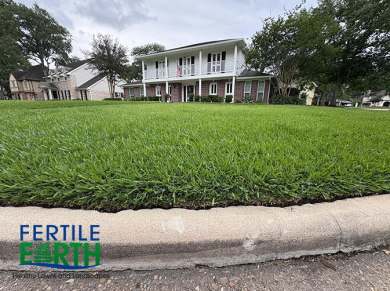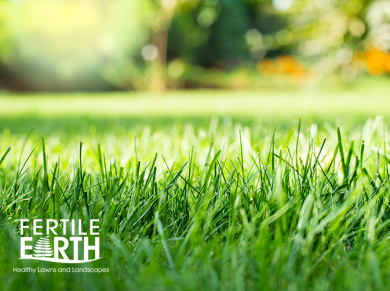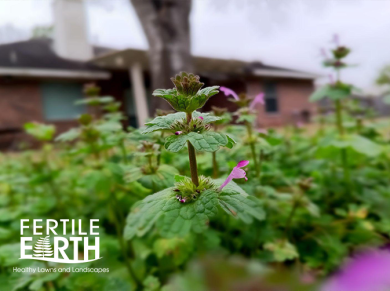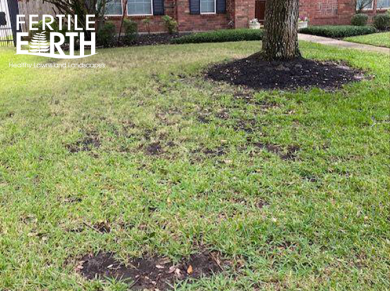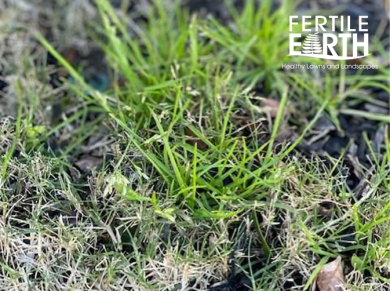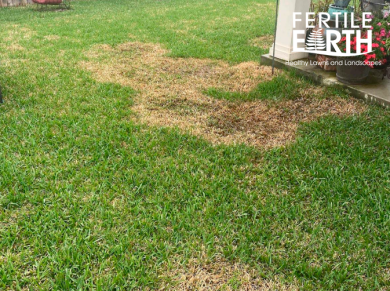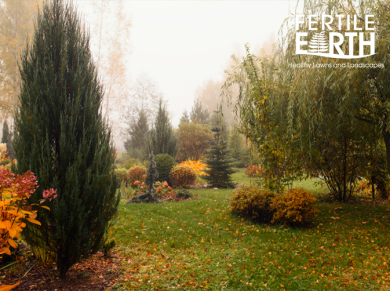Newsletter
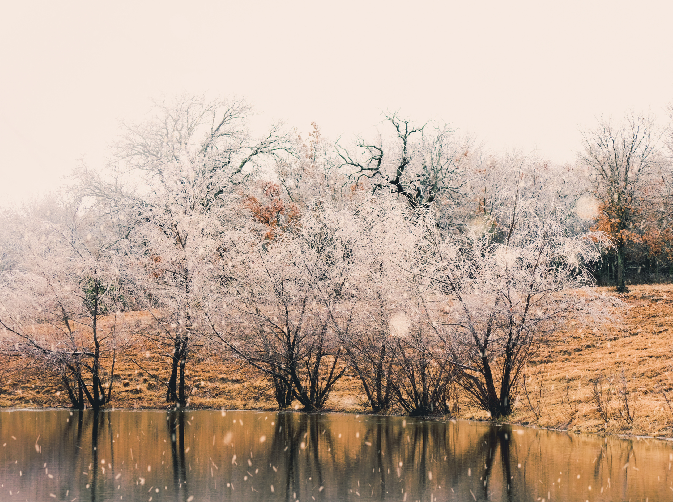
Lawn Care: What to do in January
Mowing
When the grass enters winter dormancy, it does not need to be mowed. However, some may desire to mow in order to tidy up the appearance. This should be kept to a minimum because mowing during dormancy can lead to lawn damage. It is crucial to make sure your lawn is not being scalped (mowed too short) or aggressively trimmed around flower beds, trees, and fences during this time. Consistently mowing too short will result in the deterioration of your grass. Scalping and aggressive trimming are especially damaging during dormancy because the grass is not actively growing and can not recover before the next mowing. If you notice thinning in your yard, please talk to your mowing crew and have it adjusted. A mowing height between 2 and 3 inches is recommended.
Our Role
The grass may be dormant however, the weeds are still actively growing. This is where Fertile Earth comes into play. Our winter treatment is focused on eliminating weeds that have already emerged as well as preventing new ones. Doing this sets the stage for a healthy flush of grass with minimum weeds to emerge in the spring.
We also aim to address excessive thatch growth. Thatch is a surface layer of undecomposed plant stems and roots. Too much thatch (greater than ½ inch) can reduce the water, nutrient and air infiltration into the soil. By stimulating the microorganisms in the soil, we encourage a quicker decomposition of thatch.
All of this is done in anticipation of spring in a few months. Our job is to make sure that your grass exits winter dormancy as healthy and clean as possible. Starting off the year on the right foot is key to future success.
If you have any questions please reach out!
Brandon Spiteri
O: 281-375-5100
Fertileearthtexas.com
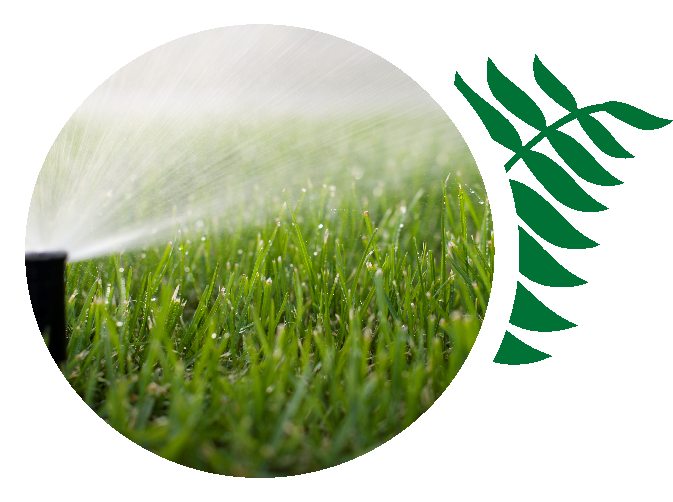
Water
Although the lawn may look dry and brown, more water is not the key. In fact, watering too frequently can be detrimental to your lawn. Overwatering in the winter can lead to root rot which will leave you with thinning patches or bare spots. In order to prevent the issue of root rot, we recommend turning off your irrigation system. In extended dry periods, watering once a week will suffice.
So do yourself a favor, save some money on your water bill and water the grass less.
(PRO TIP: If a hard freeze (below 25 degrees fahrenheit) is expected, water your grass and plants 1-2 days before the event. This works because drought stressed plants are more susceptible to the cold.)




